It might not seem necessary when researching a play, to research the playwright and his life, but it never hurts to have more information. It's definitely better to know than not know. "I'd rather have it and not need it, than need it and not have it" - A.V.P
Aeschylus was a Greek dramatist, born at Eleusis, near Athens. He is said to have written 90 plays, of which the titles of 79 are known, though only seven are extant: the Suppliant Women (? c.490 BC), the Persians (472), the Seven against Thebes (469), the Prometheus Bound (? c.460), and the trilogy known as the Oresteia (the Agamemnon, the Choephori, or Libation-Bearers, and the Eumenides)
http://www.oxfordreference.com.ezp.lib.cwu.edu/views/ENTRY.html?entry=t79.e33&srn=2&ssid=113180220#FIRSTHIT
Work Cited
"Aeschylus" The Concise Oxford Companion to the Theatre. Ed. Phyllis Hartnoll and Peter Found. Oxford University Press, 1996. Oxford Reference Online. Oxford University Press. Central Washington University. 1 November 2010 <http://www.oxfordreference.com/views/ENTRY.html?subview=Main&entry=t79.e33>
Movie Quotes. A.V.P. Web. 1 Nov 2010. <http://www.moviequotes.com/>
Monday, November 1, 2010
The Trojan War
I believe learning the origin of the this play is very important. The Trojan War took part before the actual play Agamemnon.

This link below leads to a Youtube video tells us information regarding the Trojan War. Not only that, it shows key pictures of the characters, setting, clothes, etc. that could be very useful in understanding the play. Many scripts have post introduction, telling the reader what took place before the beginning of the scene. Depending on how the director wants to direct the play, knowing what happens before that first scene could be helpful in making the production better.
http://www.youtube.com/watch?v=hRkWoYaoW0k&NR=1
- The play is 1 of 5 parts
You Tube. The Truth of Troy. 2004. Web. 30 Oct 2010. <http://www.youtube.com/watch?v=hRkWoYaoW0k>

This link below leads to a Youtube video tells us information regarding the Trojan War. Not only that, it shows key pictures of the characters, setting, clothes, etc. that could be very useful in understanding the play. Many scripts have post introduction, telling the reader what took place before the beginning of the scene. Depending on how the director wants to direct the play, knowing what happens before that first scene could be helpful in making the production better.
http://www.youtube.com/watch?v=hRkWoYaoW0k&NR=1
- The play is 1 of 5 parts
You Tube. The Truth of Troy. 2004. Web. 30 Oct 2010. <http://www.youtube.com/watch?v=hRkWoYaoW0k>
Aeschylus: Agamemnon
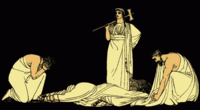
The ancient Greek play Agamemnon was written in 458 B.C.E by Aeschylus. It's the first play of trilogy, of three pieces dealing with the successive stages of a tragic story. The play is about the homecoming of Agamemnon, King of Argos, from the Trojan War. His wife Clytemnestra is waiting at home planning to murder him because of the decision that Agamemnon made, which was to sacrifice his daughter Iphigenia. Another reason for Clytemnestra's action is because of Agamemnon's absence from his daughter for ten years had corrupted her. She fell into a relationship with Agamemnon's cousin Aegisthus, who is trying to get revenge on him because he thought he should have been the one to take over the throne, not Agamemnon.
http://www.oxfordreference.com.ezp.lib.cwu.edu/views/ENTRY.html?subview=Main&entry=t9.e2047&category=
Work Cited
"Oresteia" The Concise Oxford Companion to Classical Literature. Ed. M.C. Howatson and Ian Chilvers. Oxford University Press, 1996. Oxford Reference Online. Oxford University Press. Central Washington University. 1 November 2010 <http://www.oxfordreference.com/views/ENTRY.html?subview=Main&entry=t9.e2047>
Getting Idea's From Other Sources
The wonderful thing about the present day is that we have access to many information for free. Whether it's looking up articles, news, music, history, pictures of places, people, etc. The technology we have today allows us to get that information in a matter of seconds. Another thing is that human kind has come so far already, that it is almost impossible to come up with something original. Even if you think it is original, it's most likely just a better creation of something that already exists.
In regards to theatrical plays, many plays that are being played right now is probably just another version of an existing play that was performed many years ago. But because it's been performed already, you have the ability to seeing how it was performed. Because of this, you have the option to taking the good things you liked and changing the things you didn't like in order to make it better and into your styled production.
http://www.youtube.com/watch?v=63OmAPgogwc
Work Cited
You Tube. Aeschylus Oresteia. Web. 1 Nov 2010. <http://www.youtube.com/watch?v=63OmAPgogwc>
In regards to theatrical plays, many plays that are being played right now is probably just another version of an existing play that was performed many years ago. But because it's been performed already, you have the ability to seeing how it was performed. Because of this, you have the option to taking the good things you liked and changing the things you didn't like in order to make it better and into your styled production.
http://www.youtube.com/watch?v=63OmAPgogwc
Work Cited
You Tube. Aeschylus Oresteia. Web. 1 Nov 2010. <http://www.youtube.com/watch?v=63OmAPgogwc>
Greek Furniture
Using the proper furniture and objects as mentioned before, can lead to an exact replication of the ancient Greek time period. Use of the correct items will match the rest of the production (clothes, accessories, music, etc.). It will make the production that much more realistic and accurate to what it probably would have looked like when the play was first performed back in the day.


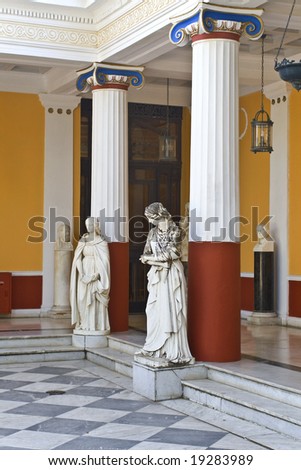
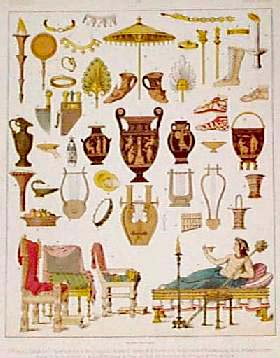
Work Cited
Google Images. Ancient Greek Furniture. Web. 1 Nov 2010. <http://www.bing.com/images/search?q=ancient+greek+furniture&go=&form=QBIR&qs=n&sk=&sc=1-23>




Work Cited
Google Images. Ancient Greek Furniture. Web. 1 Nov 2010. <http://www.bing.com/images/search?q=ancient+greek+furniture&go=&form=QBIR&qs=n&sk=&sc=1-23>
Ancient Greek Music
External sounds during a play can exaggerate moments/scenes to the fullest. Whether it would be just a few seconds, or a couple minutes, background music can be very appealing to the audience. It would draw their attention to the stage or possibly bringing them back to focus if the production had somehow lost their interest. Here again, using the appropriate music of that time period is key to bringing out the best of that era. Playing modern R&B or Rock would definitely not fit.
http://www.youtube.com/watch?v=cSaGjZKmEag
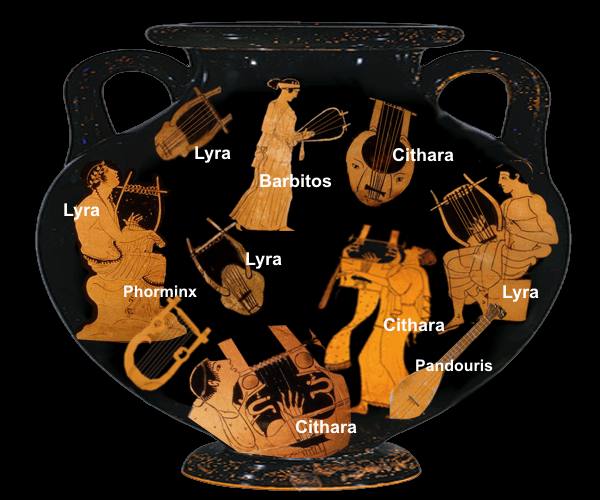
Work Cited
You Tube. Ancient Greek Music. 2007. Web. 1 Nov 2010. <http://www.youtube.com/watch?v=cSaGjZKmEag>
http://www.youtube.com/watch?v=cSaGjZKmEag

Work Cited
You Tube. Ancient Greek Music. 2007. Web. 1 Nov 2010. <http://www.youtube.com/watch?v=cSaGjZKmEag>
Pics of Greek Clothes
Knowing what type of clothing or accessories characters wore are crucial in bringing out the look of each character. Outdated clothing from the actual time period can miss lead the audience, providing them with false information. Some of this can lead to un-satisfaction, therefore bringing negative feedback towards the production.

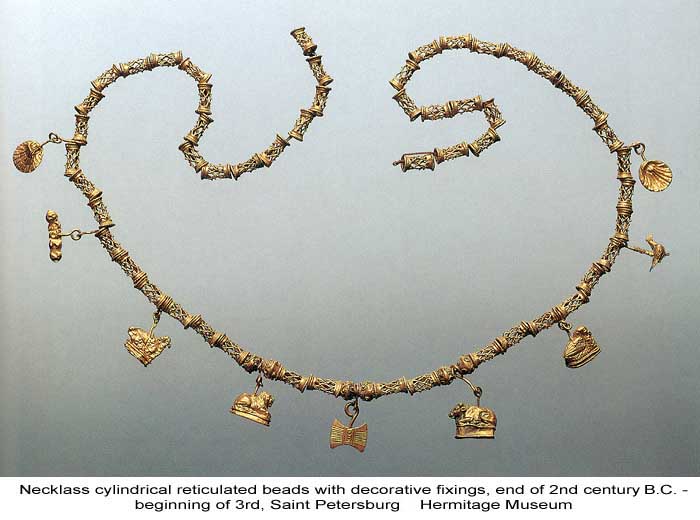



Work Cited
Bing Images. Ancient Greek Clothes. Web. 1 Nov. 2010 <http://www.bing.com/images/search?q=ancient+greek+clothes&go=&form=QBIR&qs=n&sk=&sc=8-16>





Work Cited
Bing Images. Ancient Greek Clothes. Web. 1 Nov. 2010 <http://www.bing.com/images/search?q=ancient+greek+clothes&go=&form=QBIR&qs=n&sk=&sc=8-16>
Pics of Ancient Argos
Pictures of ancient Argos/Greece are great examples to use in set production. A few of the pictures below are actual footage's of ancient Argos. With these and possibly many other pictures, we can recreate the location on to the stage of this production, providing the audience with the most accurate images of ancient Argos.





Work Cited
Bing Images. Ancient Argos Buildings. Web. 1 Nov. 2010 <http://www.bing.com/images/search?q=ancient+argos+buildings&go=&form=QBIR&qs=n&sk=>





Work Cited
Bing Images. Ancient Argos Buildings. Web. 1 Nov. 2010 <http://www.bing.com/images/search?q=ancient+argos+buildings&go=&form=QBIR&qs=n&sk=>
The Script of Agamemnon
The script is obviously one source that is needed in order to make the production. Using the script you can identify the characters, setting, lines, etc. Anything that is written in the script are I would say "directions or guidelines" in order to properly execute a production. Any clues that the author has given are details to make the new production that much similar to the original.
http://books.google.com/books?id=UgwqAAAAYAAJ&printsec=frontcover&dq=agamemnon+aeschylus&hl=en&ei=xYfOTPKoDorAsAOt3IiZDg&sa=X&oi=book_result&ct=result&resnum=7&ved=0CEoQ6AEwBg#v=onepage&q&f=false
Work Cited
Goodwin, W. W. Aeschylus: Agamemnon. American Book Co. 1906. Google Books. Web. 31 October 2010.
http://books.google.com/books?id=UgwqAAAAYAAJ&printsec=frontcover&dq=agamemnon+aeschylus&hl=en&ei=xYfOTPKoDorAsAOt3IiZDg&sa=X&oi=book_result&ct=result&resnum=7&ved=0CEoQ6AEwBg#v=onepage&q&f=false
Work Cited
Goodwin, W. W. Aeschylus: Agamemnon. American Book Co. 1906. Google Books. Web. 31 October 2010.
Notes on Agamemnon
A.S.F Grow did a review on Agamemnon. Ancient texts are often hard to decipher, Grow gave some opinions on a few sections/sub texts of this play. His inputs can become useful information in recreating this play in modern time. There are many things one might miss when reviewing something, so getting inputs from other people is definitely a plus.
"If we consider further the relation between Agamemnon's honour and the punishment of Paris, it is obvious that the relation is temporal rather than casual. Agamemnon has only been the most august of men since Paris paid the penalty; so long as he remained unpunished Agamemnon's reputation has been under cloud."
http://www.jstor.org.ezp.lib.cwu.edu/stable/pdfplus/635698.pdf
Work Cited
A.S.F. Grow. Cambridge University Press. 1914. Web. 31 2010 <http://www.jstor.org.ezp.lib.cwu.edu/stable/pdfplus/635698.pdf>
"If we consider further the relation between Agamemnon's honour and the punishment of Paris, it is obvious that the relation is temporal rather than casual. Agamemnon has only been the most august of men since Paris paid the penalty; so long as he remained unpunished Agamemnon's reputation has been under cloud."
http://www.jstor.org.ezp.lib.cwu.edu/stable/pdfplus/635698.pdf
Work Cited
A.S.F. Grow. Cambridge University Press. 1914. Web. 31 2010 <http://www.jstor.org.ezp.lib.cwu.edu/stable/pdfplus/635698.pdf>
Subscribe to:
Posts (Atom)